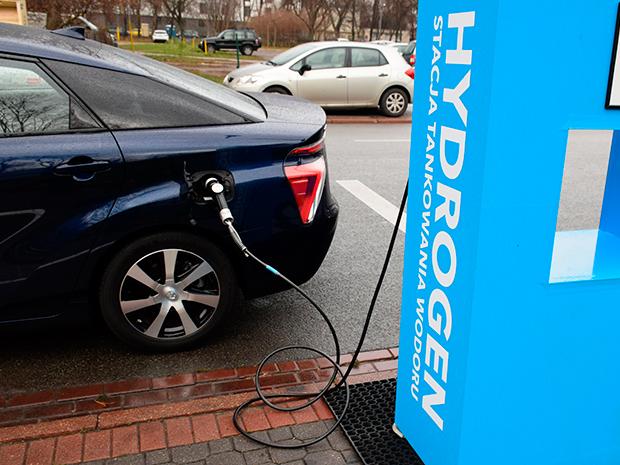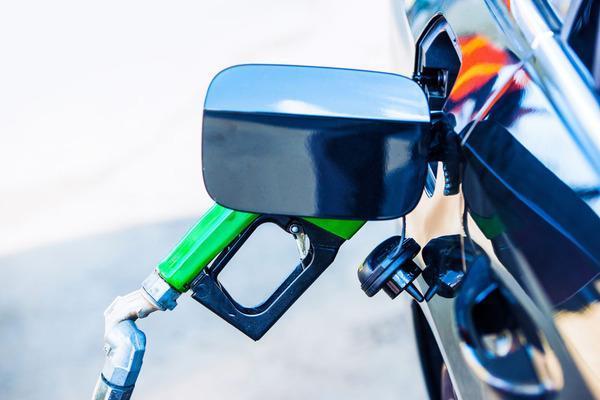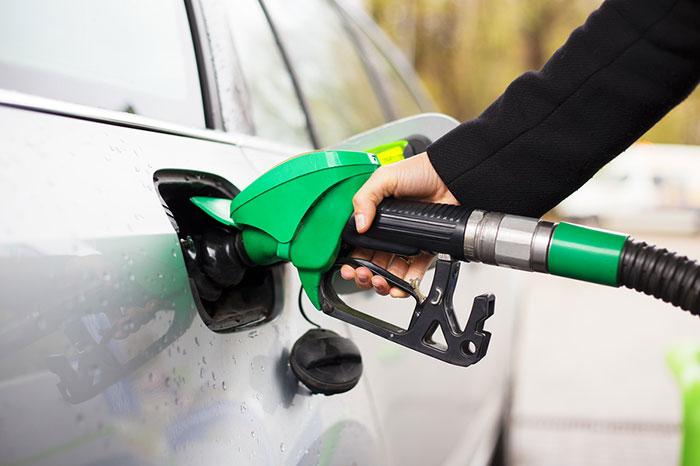Your car reminds you of refueling the tank by turning the fuel light on. Many drivers find it annoying and choose not to refill before driving a few more miles. Others freak out and head straight away to the nearest gas station. Well, every driver should know some facts about the fuel tank capacity to avoid either damaging the engine or feeling too rushed.
Contents
What Is a Car’s Standard Fuel Tank Capacity?
The fuel tank is a part of the engine system that contains flammable fuel such as oil, gasoline, or ethanol to avoid any fire hazards. Fuel tanks are made from different materials, but the most common are materials from plastic, steel, and aluminum… Most average tank size of a car can carry something between 45 and 65 liters. However, SUVs and trucks have larger tanks while the size is smaller for the Nano cars.
Some vehicles have a secondary fuel tank called the reserve tank, which contains approximately 15% of the capacity of the primary chamber. However, it’s only seen in older vehicles or the ones designed for a particular use and long distances. For example, the Lexus LX570, and Toyota Land Cruiser… have a 93-liter main tank, with a 45-liter auxiliary tank.

The location of the fuel tank is usually located below the rear seats. In the unfortunate event of an accident, this is a position that is less affected. The fuel tank on tractors and trucks is usually located right behind the front of the vehicle.
You have to read the writings on the fuel chamber’s cap to find out the capacity of your car. If it reads 60L, it means that a gasoline tank capacity can contain 60 liters of fuel. In modern vehicles, this quantity is inclusive of the reserve tank, which only indicates the level where the fuel light will warn you about a low level of gas. You should also know that you won’t be able to empty the tank because the engine will stop functioning when there are 5 to 10 liters left. Besides, 1 or 2 liters of gas will be unusable because it just keeps the sediments at the bottom.
Read more:
Is It Possible to Fill Gas Tank Full or More Than the Rated Capacity?
Technically, yes and no. You cannot put 60 liters into a 55-liter container. The gas tank capacities also need a stable volume to normally activate. On the flip side, the inlet pipe or fuel neck in some cases can hold 10 to 15 liters. Besides, most gas chambers are bigger than the rated fuel tank capacity because there’s room for the air at the top, which helps to prevent vapor locking.

You should not overfill the fuel chamber because it will not leave any space for the air. In that case, oil will have no room to expand when warm, creating pressure on the tank’s walls and leading to damaging the engine.
How Far Can a Car Go with the Fuel Light on?
You might have already checked the fuel tank capacity of your automobile. Well, it’s also important to know how far it can go when the fuel light turns red. You certainly don’t need to panic because the indicator just signals that the fuel has reached the reserve level, which is almost 10% to 15% of the total capacity of the chamber. So, it means that the car still has enough juice to drag you a couple of miles. If the fuel tank capacity of the vehicle is 60 liters, the needle indicates the E level (about to run out), then, in fact, there are still 5-10 liters to go to the nearest gas station. However, drivers should keep the fuel in the tank from 1/4 or more, because if you often drive the car when out of gas, it will hurt your engine.
However, it’s not a good idea to drive until the tank is dry because you will only draw the sediment through the system and damage the engine parts because these will have more friction and overheat the engine because of the low level of fuel.
You must always keep 1/4 of the fuel tank for the following reasons. First, the fuel in the tank helps to cool the fuel pump located below the fuel tank. Second, this helps prevent rust from entering the fuel filter.
To make clear about this problem clear, we will show you a video about Can you get more miles on the road with a POOR FUEL TANK? It will also show you the limitation of your fuel tank capacity to make sure you will have non-trouble driving.
Watch more:
How To Handle When Putting Wrong Fuel In Your Car?
Automakers all recommend calling for help and technicians immediately after detecting that the vehicle has been filled with the wrong fuel. According to practical experience, when the wrong fuel is poured into the diesel engine, the car can still move a few kilometers. However, the engine makes a loud noise and then shuts off completely.
Draining of fuel in the tank. Put new oil into the high-pressure pump for rinsing. Then let the car idle for 10-20 minutes to check if the engine starts normally or not. If the car has a strange noise, take the car to the service center to have it checked. When the wrong fuel is poured into a vehicle with a gasoline engine, the problem can be more serious, as it can damage the engine. This case should have the timely support of the mechanic to suck out fuel, clean, and check.
Last words, if you are interested in our maintenance tips that we have shown, don’t hesitate to follow us. Let’s catch up with us through daily updated articles and together have a safe driving!




Good Updates, reminders, and information. This keeps me informed. Now I keep extending this to my clients
We are happy to receive your comments. Please share with your friends so they can enjoy this article, too.
Intresting thanks a lot
Thac for this very important information regarding car fuelling tips. I have learnt muvhnon.this topic.
Thanks for the tip. I will no longer fill to the brim including the inlet pipe. I suppose the sensor stops further refuelling when this level is reached.
Filling isnt bad but the matstu guys even lean the cars to increase the capacity. This is the bad bit.
So helpful. I learn something whenever I read.
Thanks for the tip,,, I always wanted to know how far a car will go when the fuel light comes,,, now I know
Vinaka
Learnt a lot,thanks for the information.
Good insights there…Thank u
This is very helpful.continual educating us
Thanx, whenever i read your articles i got something new. Good job keep it up.
I recently became an active driver and your articles have really shed a lot of knowledge that have bailed me out of tough spots as well as putting me on the look out to avoid future mishaps. Keep them coming. Thank you.
Very Helpful, Many thanks
Thanks a lot indeed learning is continuous. Keep up with more posts, bravo
Your driving & basic mechanical tips are quite eductive.
Thanks very useful info as I’ve seen many shaking the vehicle to fill in more fuel
Very helpful titbits about how to manage a vehicle with regard to fuelling and refuelling.
My question then becomes, when does the pump attendant know that he should stop filling the car with fuel, when the pump hose mechanism snaps back or when he see the fuel at the mouth of the fuel tank pipe??
Thank Car from Japan for the information and updates however i have a question not related to this, how can i control my automatic transmission car in case the braking system stops while on a high speed because for a manual you can use gears.
Thank you
Thanks for sharing this important topic on car fuel tank, have learned
Great thanks for the useful information
Great thanks for the useful information as to protect our machines.
This is very informative, how do I subscribe to you blog to receiving such useful information
It is good to know about the Tips you give on Vehicle maintenance and fuel refills, most people do not know this
Thanks today I have learned a lot
On the dash board of my Toyota corolla wagon 103 there is this sign check engine.what cause this sign to appear?my car also has is a dual fuel car.but there is no gas station in kenya.roads are bad in kenya and the gas tank frequently keeps on tearing and making terrible noise.what is the effect if I will approach a mechanic to remove it.does it hold a dangerous gas? Will it blow if I store it?
Thanks for the information keep educating us much appreciated
Well articulated
This is great. I’ve learnt something important on fuel and tank, keep on updating on such issues so we can use these vehicles effectively.
Is real fuel capacity written in card car?
I drive a 2015 Camry Se. My fuel capacity says 64 L. I have a digital distance til empty reader. I drove my car until 5km to empty then filled my car up to full. It took only 54 L to fill up. Does anyone know why I’m off by 10 L. I always felt like I got bad milage for that. My car ranges from 505-530Km when full.
I thought that it was interesting when you said that normal vehicles will typically hold between forty-five and sixty liters of fuel but that other cars are capable of holding more at one time. I have been thinking about buying a car but I have been worried that I would have to make trips to the gas station a lot to fuel up. I will be sure to find a car that will hold a lot of fuel at one time in order to avoid the need for making several trips to get more gas.